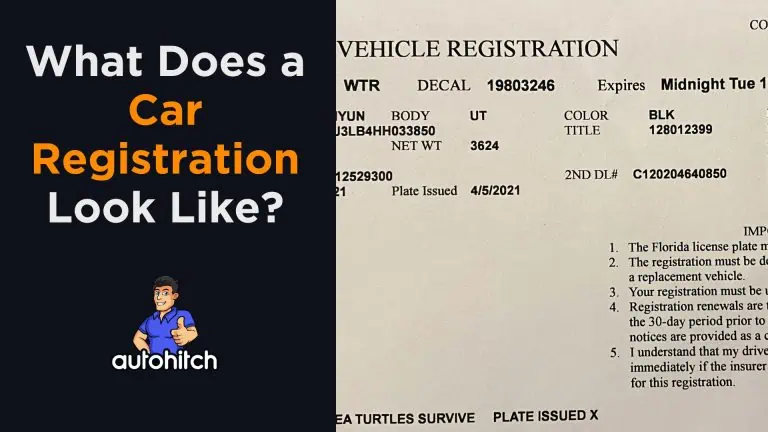For new car owners, first-time drivers, or those who have recently immigrated, one of the first things you’ll need to do is register your vehicle with your state’s Department of Motor Vehicles (DMV).
What is a Car Registration
Car registration proves that you’ve paid the required taxes and fees to legally drive on public roads. But what does a car registration look like?
What Does a Vehicle Registration Look Like
Sample Registration:
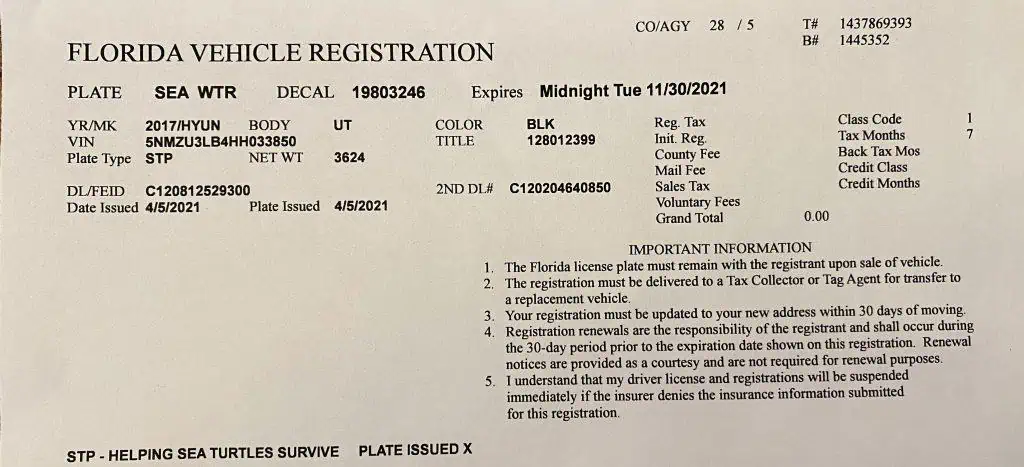
Table of Contents
Information Found on a Vehicle Registration
| Registration Detail | What It Shows |
|---|---|
| Vehicle Information | Make, model, year, vehicle identification number (VIN) |
| Owner Information | Registered owner’s full name and address |
| Registration Expiration | Date the registration expires and needs to be renewed by |
| License Plate Number | License plate number assigned to the vehicle |
| Vehicle Weight/Class | The weight class or gross vehicle weight rating, which affects registration fees |
| Odometer Reading | The odometer mileage reading when the vehicle was last registered |
| Lien/Lienholder Info | Name and address of any lender that has a lien on the vehicle |
| Issue Date | The date the current registration was issued |
Related Articles To Read:
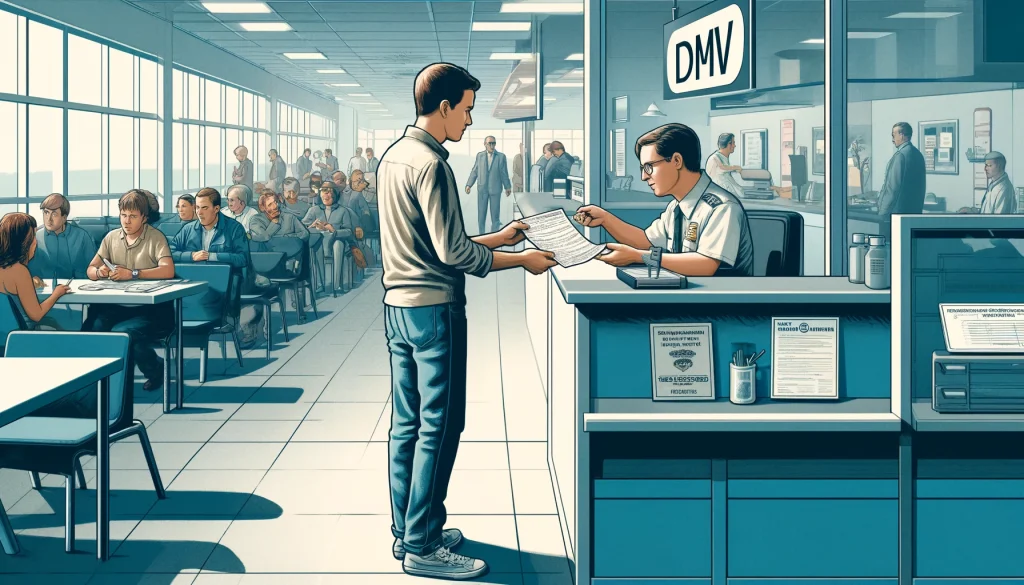
How To Register Your Car (First Time)
Although the process will vary slightly from state to state, below is a general idea of how you get a register a vehicle:
1. Providing Required Documents
To register your vehicle, you’ll need to gather the following documents:
- Vehicle title or signed purchase agreement
- Proof of car insurance coverage
- Completed application for a registration (Varies by state)
- Payment for fees and taxes
2. Submitting Your Application and Required Documents
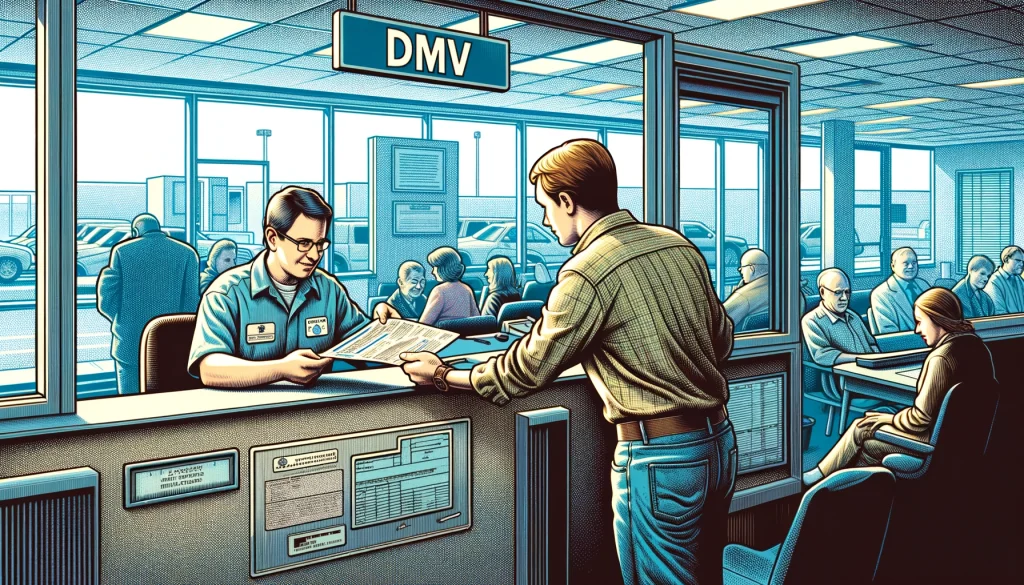
Once you have all the required documents, you can submit your application for registration:
- Many states allow online, mail, or in-person applications through the DMV
- Be prepared to show ID and documents verifying proof of residency
3. Receiving Your Car Registration
Once your application is approve (which is immediately if everything checks out) you will receive:
- A registration card
- License plates or a sticker to attach to your existing plates
Note: Registration cards are printed the same day, so you won’t have to worry about driving without one.
Tip 1: If you purchase a car from a dealership, the dealership is required by law to register your car on your behalf and they have 30 days to do so.
Tip 2: Always check your state’s Department of Motor Vehicles website for accurate and up-to-date steps.
Average Registration Costs
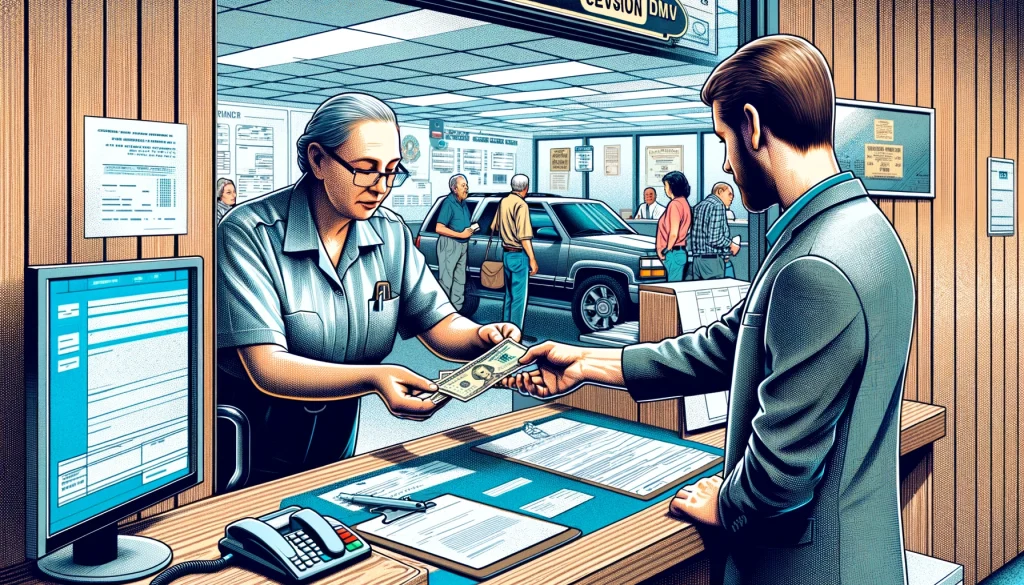
The costs for a new vehicle registration can vary significantly by state. Here are some examples of the different costs to register a vehicle:
- California: $58 base registration fee for most vehicles, plus other fees based on vehicle value, county taxes, etc. Expect to pay $200-$400 for a new registration.
- Florida: $225 initial registration fee for a car not previously registered in Florida. Renewal fees are lower at around $80.
- Georgia: $20 registration fee, plus $18-$25 fee based on vehicle’s factory delivered price. So $38-$45 for a new registration.
- New York: $25 registration fee, plus $7-$21 based on vehicle weight. Additional county fees may apply, so $50-$100 is typical.
Many states also charge additional fees for title transfers, license plates, and other DMV services when first registering a vehicle. Be prepared for the total costs to potentially reach several hundred dollars.
Expired Registration
You’ll have to renew your registration annually or every few years, usually 1-2 years, depending on your state. For renewals, you can often complete the process online by providing the following documents:
- Vehicle identification number (VIN)
- License plate number
- Driver’s license number
- Proof of insurance
Why is Car Registration So Expensive?
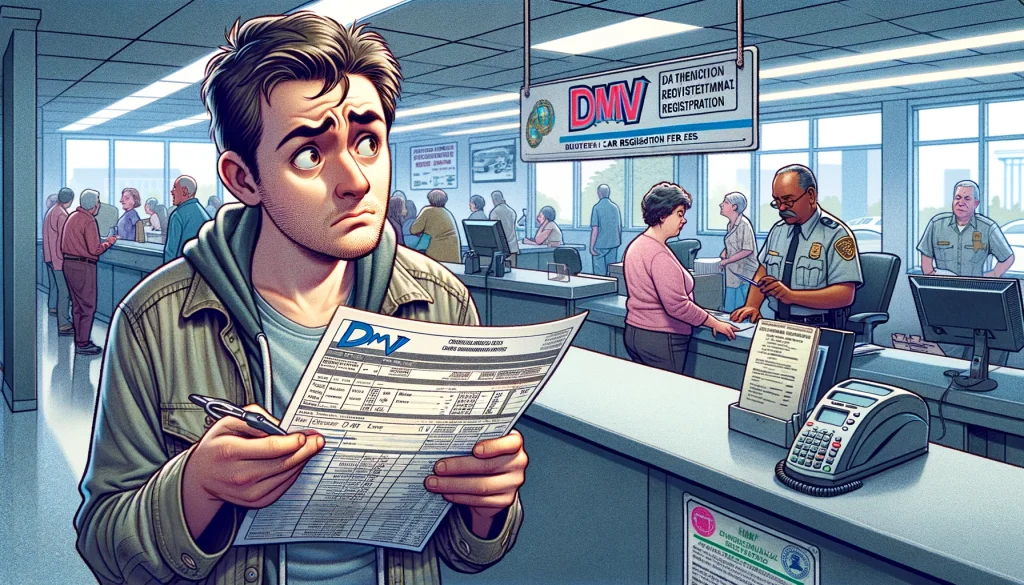
There are several factors that contribute to the high cost of vehicle registration in many states:
Vehicle Value and Weight
Many states base their registration fees on the value and/or weight of the vehicle. More expensive and heavier vehicles generally have higher fees. This is because more valuable cars require higher fees to offset the potential costs if they are involved in an accident, and heavier vehicles cause more wear and tear on roads.
Fuel Type
Some states charge additional fees for electric vehicles (EVs) and hybrid vehicles. This is because owners of these vehicles do not pay gasoline taxes that traditionally fund road maintenance and construction. The higher costs help make up for this lost gas tax revenue.
Road Maintenance and Infrastructure Costs
All DMV fees help fund the repair, maintenance, and construction of roads, bridges, and other transportation infrastructure within the state. As infrastructure ages and construction costs rise, states increase these fees to keep up with funding needs.
Vehicle Property Taxes
Several states treat vehicles as taxable personal property and include an annual “vehicle property tax” or “wheel tax” as part of the registration fees. This operates similarly to property taxes on homes and land.
Other State Fees and Taxes
On top of the base registration fee, states often tack on additional charges like title fees, plate transfer fees, emissions testing fees, and various taxes. These extra costs can significantly increase the total expense of legally driving a car.
Lack of Competition
Since vehicle registration is mandated by the state, there is no competition. Residents have no choice but to pay the fees set by the state government each year.
Can I use a PO box for car registration?
No, you cannot use a PO box address for vehicle registration purposes. States require a physical street address where the vehicle is primarily located and operated.
How much to renew car registration?
Renewal fees vary by state but are generally lower than the initial registration costs. Expect to pay $50-$150 on average to renew a standard passenger vehicle registration annually or biennially.
Can I laminate my car registration?
While not legally required, it’s recommended to keep your vehicle registration certificate protected by laminating it or storing it in a plastic sleeve. This prevents damage and ensures it remains legible.
Do I need to change my car registration after marriage?
Yes, you are typically required to update your vehicle registration with the DMV after a legal name change due to marriage or other reasons. The name on the registration must match your current legal name.
Does car registration expire on a birthday?
No, vehicle registrations do not expire on the owner’s birthday. They expire annually or biennially based on the initial registration date, which varies for each vehicle.

